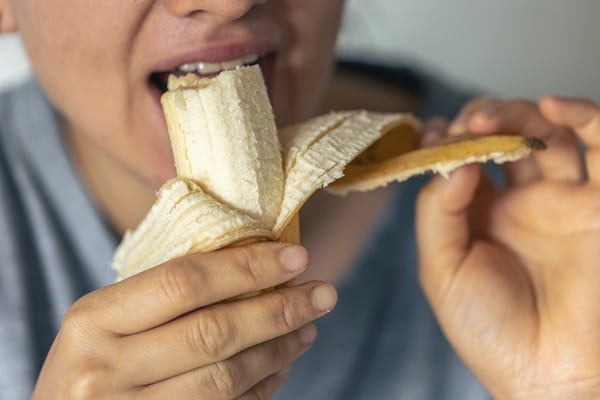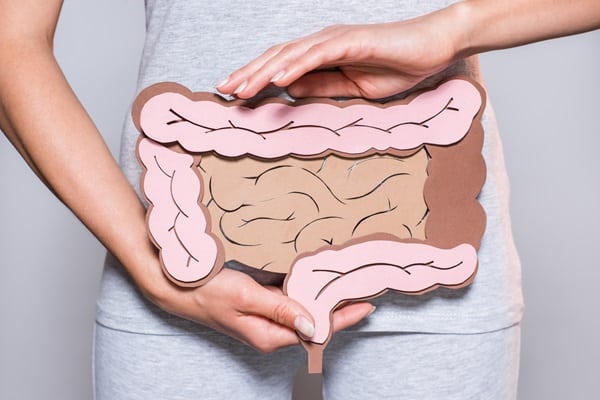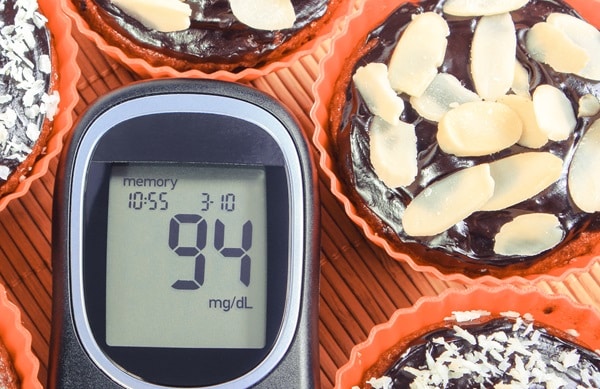Sugar, a fundamental element in most diets, significantly influences both health and wellness. This exploration delves into how the body can process sugar, breaking down the journey from consumption to absorption and its overall impact on health. It’s critical to understand this process as it provides insights into managing dietary choices and maintaining good health. By comprehending the intricate ways sugar affects your body, you can navigate your way to better health and make informed decisions about your sugar intake. This piece aims to illuminate the path of sugar in the body, offering a clear view of its role and effects.
Contents
- 1 Types of Sugars and Their Sources
- 2 The Journey of Sugar: From Mouth to Stomach
- 3 Absorption and Transportation
- 4 Blood Sugar Regulation: Insulin and Glucagon
- 5 Utilization of Sugar: Energy Production
- 6 The Impact of Sugar on the Body
- 7 Special Considerations in Sugar Processing
- 8 Reducing Sugar Intake: Strategies and Benefits
- 9 Chart Your Course to a Sweeter Health Horizon
Types of Sugars and Their Sources

Simple sugars like glucose and fructose are found naturally in fruits and honey, while complex sugars, or polysaccharides, are in foods like bread and pasta. Added sugars, those not naturally occurring in foods, are often included in processed foods for flavor, preservation, or texture. Understanding these distinctions is foundational, as the body handles different types of sugars in varied ways. Knowledge of sugar types aids in making informed dietary choices, impacting overall health.
However, the discussion of sugar isn’t complete without mentioning sugar alcohols and artificial sweeteners, often used as substitutes. While they offer sweetness without the same caloric content, their impact on health and digestion differs significantly from natural sugars. The market is replete with alternatives like xylitol and aspartame, each with unique effects on the body’s sugar-processing pathways. Deciphering these alternatives’ roles and effects is essential for a holistic understanding of sugar in your diet.
The Journey of Sugar: From Mouth to Stomach

When sugar enters the mouth, taste receptors identify its sweetness, triggering the release of salivary amylase, an enzyme that begins breaking down complex sugars into simpler forms. This initial phase of digestion is brief but crucial, setting the stage for further breakdown. The chewed and enzyme-coated sugar then travels down the esophagus, moving swiftly toward the stomach. This journey, though simple, is the first step in a complex metabolic process.
In the stomach, the acidic environment continues the breakdown process, although the majority of sugar digestion occurs later. The presence of fiber in the diet can slow this process, moderating the absorption rate of sugars and impacting post-meal blood sugar levels. As the stomach does its work, the next stage of sugar’s journey, absorption, is about to begin in the small intestine, highlighting the body’s remarkable capacity for nutrient processing.
Absorption and Transportation

In the small intestine, enzymes break down disaccharides into monosaccharides, the simplest sugar forms, readily absorbed into the bloodstream. This process is facilitated by villi and microvilli, tiny finger-like projections lining the intestinal wall, increasing the surface area for maximum nutrient absorption. Once absorbed, these sugars enter the bloodstream, becoming available for use or storage, marking a critical transition from digestion to utilization.
As blood sugar levels rise, the body’s regulatory mechanisms kick into gear. The liver plays a pivotal role in deciding how much sugar to store for future energy needs and how much to leave circulating in the blood. This intricate balancing act ensures that cells throughout the body receive the fuel they need while maintaining optimal blood sugar levels, demonstrating the body’s finely tuned regulatory systems.
Blood Sugar Regulation: Insulin and Glucagon

The pancreas monitors blood sugar levels, releasing insulin or glucagon as necessary. Insulin, a hormone, facilitates the uptake of glucose by cells, reducing blood sugar levels. It acts like a key, unlocking cells to allow sugar to enter, where it’s used for energy or stored for future use. This process is vital for immediate energy needs, such as fueling brain function or muscle activity. Conversely, when blood sugar levels drop, glucagon signals the liver to release stored glucose, maintaining a balance.
However, this balance can be disrupted in conditions like diabetes, where insulin production or response is impaired. Understanding the delicate interplay of insulin and glucagon is crucial for managing and preventing such conditions. Regularly consuming high-sugar foods can lead to insulin resistance, a condition where cells become less responsive to insulin, underscoring the importance of moderated sugar intake for maintaining metabolic health. This hormonal regulation exemplifies the body’s complex response to sugar intake, highlighting the need for a balanced approach to dietary sugars.
Utilization of Sugar: Energy Production

Once glucose is in the body’s cells, it undergoes a process called cellular respiration, converting sugar into ATP (adenosine triphosphate), the primary energy currency of the cell. This process occurs in every cell, powering everything from brain activity to muscle contractions. Glucose is the preferred energy source for many of the body’s functions, particularly for the brain, which relies heavily on sugar to maintain cognitive processes. This underscores the importance of a steady supply of glucose for optimal bodily functions.
However, when glucose intake exceeds immediate energy needs, the body converts the excess into glycogen or fat, storing it for future use. Glycogen is stored in the liver and muscles, while fat can be deposited throughout the body. This storage mechanism is essential for energy management but can lead to issues like obesity and metabolic syndrome when consistently excessive. Understanding the balance between sugar intake and energy expenditure is key to maintaining healthy bodily function and preventing chronic health issues.
The Impact of Sugar on the Body

The immediate effect of sugar intake is often a quick surge in energy, followed by a rapid decline, commonly known as a “sugar crash.” This cycle can lead to feelings of fatigue and irritability, impacting daily activities and overall well-being. Regularly experiencing these fluctuations can also lead to a dependency on sugar for energy, disrupting natural hunger cues and leading to overeating. In the short term, these effects are inconvenient, but over time, they can evolve into more severe health issues.
Long-term excessive sugar intake is linked to various chronic diseases, including type 2 diabetes, obesity, and heart disease. These conditions arise from the body’s inability to manage and store excess sugar effectively, leading to prolonged elevated blood sugar levels and insulin resistance. The glycemic index and glycemic load of foods are essential tools in understanding and managing these risks, as they help indicate how different foods affect blood sugar levels. Understanding and moderating sugar intake can significantly reduce the risk of these chronic conditions, highlighting the importance of a balanced diet.
Special Considerations in Sugar Processing

Individual factors such as age, metabolism, and existing health conditions significantly influence how the body processes sugar. For example, metabolic rates decline with age, affecting how quickly the body uses and stores glucose. Similarly, conditions like diabetes or metabolic syndrome alter the body’s ability to regulate blood sugar, necessitating careful management of sugar intake. These individual differences are critical to consider when making dietary choices, emphasizing the need for personalized nutritional guidelines.
The use of artificial sweeteners and sugar alternatives has become increasingly popular as people look for ways to enjoy sweetness without the caloric intake of sugar. While these alternatives can be useful in managing calorie and sugar intake, their effects on the body’s sugar processing and overall health are still being understood. For some, they may offer a beneficial way to reduce sugar consumption, while for others, they may lead to cravings and even metabolic changes. It’s important to understand these alternatives’ potential impacts and make informed choices based on individual health needs and preferences.
Reducing Sugar Intake: Strategies and Benefits

Reducing sugar intake is a common goal for many looking to improve their health, and there are several strategies to achieve this. Simple steps like reading food labels, understanding terms that indicate added sugars, and reducing the consumption of sugary drinks and snacks can make a significant difference. Additionally, increasing the intake of whole foods, such as fruits, vegetables, and grains, can help maintain a balanced diet and reduce cravings for sugary foods. These dietary adjustments can lead to improved health, including better weight management and reduced risk of chronic diseases.
The benefits of reducing sugar intake extend beyond immediate physical health improvements. Over time, lower sugar consumption can lead to stabilized energy levels, improved mental clarity, and a reduced risk of health conditions like dental decay, diabetes, and heart disease. Cultivating an awareness of sugar in foods and making mindful choices can lead to long-term health benefits, emphasizing the importance of a balanced approach to diet and nutrition. Understanding and applying these strategies can empower individuals to take control of their sugar intake and overall health.
Chart Your Course to a Sweeter Health Horizon
In exploring the journey of how the body processes sugar, it’s clear that awareness and moderation are key. By understanding the impact of sugar and implementing strategies to manage intake, you can significantly improve your health and well-being. Encourage yourself to read labels, choose whole foods, and understand your body’s unique needs. Let this knowledge empower your dietary choices, leading you toward a balanced and healthier lifestyle. Take the first step today towards a more informed and health-conscious approach to sugar.


